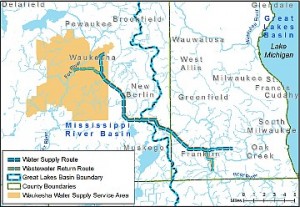Commonly Confused Words, Part V
I’ve previously posted on words that writers, particularly lawyers, commonly confuse. Those posts are here (that/which/who, more than/over, few(er), less, amount/number, farther/further, since/because/as, among/between, who/whom, attain/obtain), here (a/an/the, counsel/council, e.g.,/i.e., it’s/its, principal/principle, then/than, utilize/use, you’re/your, affect/effect, tortious/tortuous, tack/tact, capitol/capital, motioned/moved, flesh/flush), here (although/while, assure/insure/ensure, complement/compliment, rational/rationale), and here (a couple, a few, some, several, and many).
Today, I’ll cover seven more pairs of commonly confused words.
Born/borne – Both words are past participles of “to bear”; however, only one relates to birth. Use “born” when referring to literal or figurative birth, such as: She was born in California or Wisdom is born from years of experience. “Borne,” on the other hand, refers to the other meanings of “to bear”: such as, to carry, to produce, or to bring about. “Borne” would be proper in the following: Costs associated with this litigation will be borne by the defendant.
Good/well – “Good” is an adjective, “well” is an adverb. That is, “good” describes and “well” modifies or qualifies. A good lawyer writes well. “Good” in that sentence describes the noun, “lawyer.” (What kind of lawyer? A good one.) “Well” qualifies the verb “writes.” (How does the lawyer write? Well.) The exception to this good/well distinction involves health. If you’re asked How are you?, the grammatically correct answer would be I am well (i.e., your health is good).
Do not use “good” to modify a verb. We might say That lawyer is good at writing, but we certainly wouldn’t say That lawyer writes good.
Lay/lie – My wonderful colleagues Anne Enquist and Laurel Currie Oates from Seattle University have best explained the distinction between these two words in their book Just Writing: Grammar, Punctuation, and Style for the Legal Writer (4th ed. 2013). I am drawing from their explanation nearly verbatim but for style changes to fit the form here.

